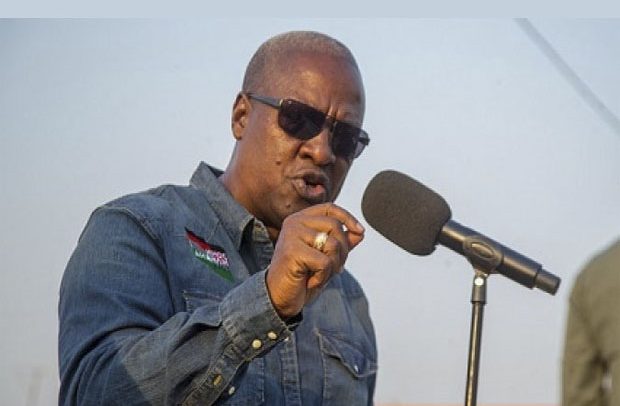
By Shirley HAIZEL-FERGUSON
The government’s plan to lift the ban on commercial motorcycle operations and integrate them into Ghana’s national transport system is a welcome and positive step towards a more inclusive transportation network.
This decision rightly acknowledges the significant role commercial motorcycles (okada) play in facilitating passenger movement, particularly in navigating vehicular traffic.
Furthermore, it recognizes the substantial income-generating opportunities that okada operations provide for many young people.
As has been reported, the principles of safety, inclusivity, and innovation form the basis of the mandate of the 13-member Technical Committee assigned to review the Okada regulations {Regulations 128(1)(2)(3)}.
However, the effectiveness of these revised regulations will heavily depend on robust enforcement mechanisms. Therefore, a well-considered and integrated enforcement regime within the revised regulations is paramount, especially given the known challenges in Ghana’s legislative enforcement landscape.
While the Rwandan experience offers a best practice model emphasizing strict adherence to traffic regulations and mandatory standardized helmet use, it is crucial to note that even in Rwanda, commercial motorcyclists remain a high-risk group.
Learning from the experiences of Kenya and Uganda, which have also legalized Okada operations but are reportedly facing negative consequences like increased crashes and fatalities, is paramount.
In fact, there are reports that traffic police are often unable to make arrests for motorcyclists breaking the law. They fear fights because drivers quickly come to support one another.
The Technical Committee has a critical responsibility to conduct thorough consultations and proactively develop a framework that prevents similar challenges in Ghana from the outset. Furthermore, it is essential to equip enforcement agencies with required resources and, critically, to develop and enshrine appropriate helmet standards in legislation.
To effectively address safety concerns and propose viable legislative solutions, the Technical Committee should consider the following key factors, in conjunction with the government’s plan to establish motor riders’ associations:
Standardising, legislating and enforcing the use of crash helmets: The use of standardised helmets is paramount in a regime of okada legalisation.
Most challenges that other countries face have to do with the use of substandard and unsafe helmets that do not prevent fatalities and serious injuries in the event of a motorcycle crash.
The Ghana Standards Authority (GSA) is beginning a process to develop standards for helmets. It is imperative that the Ministry of Transport and associated agencies collaborate closely with the GSA throughout this process to ensure that robust standards are established and legally enshrined within the Road Traffic Regulations.
However, the development of standards alone will not suffice. The regulatory framework must proactively address the anticipated influx of substandard imported helmets.
Designated parking space and operational scope: A significant challenge associated with the potential legalization of Okada operations in Ghana is the prevalent recklessness and general indiscipline exhibited by many motorcycle users.
This includes documented instances of riders driving against traffic, making illegal U-turns to evade law enforcement or expedite travel, and disregarding traffic signals.
These behaviors substantially increase the risk of road crashes and endanger pedestrians and other road users. While rigorous enforcement of existing traffic laws is crucial to address these issues, the Technical Committee should also consider implementing strategic operational limitations.
This could involve prohibiting Okada access to highways and motorways and establishing designated parking and pick-up zones.
Child Safety: Child safety should be another important consideration in the era of okada legalisation. Children traveling on motorcycles are more likely than adults to suffer serious consequences in a crash, as their brains and skulls are more vulnerable.
It might be imperative to limit riders from taking passengers under the age of twelve (12), or as the Committee deems fit for the local context.
Training and licencing for riders: Implementing training and licensing programs is vital, as they can significantly mitigate the high-risk behaviors commonly exhibited by Okada riders. Additionally, establishing age restrictions for riders and offering incentives to encourage training and education can further enhance road safety.
Setting up a separate unit within the MTTD: Establishing a specialized Motorcycle Enforcement Unit within the Motor Traffic and Transport Unit (MTTU) of the Ghana Police Service can be crucial to the legalisation regime.
This dedicated unit will be specifically mandated and trained to address the unique challenges associated with motorcycle traffic. Unlike general vehicular enforcement, motorcycle enforcement requires a nuanced understanding of rider behavior, motorcycle dynamics, and the specific risks prevalent in Okada operations.
Conclusion
The review of Regulations 128 of the Road Traffic Regulations (LI 2180) is a positive first step. However, considering the need to closely implement and monitor motorcycle safety interventions, it could be logical to rather create a separate Legislative Instrument specifically for motorcycle operations, distinct from LI2180, but aligned with the Road Traffic Act, 2004 (Act 683).
This new instrument should focus on establishing a clear, nationally agreed enforcement strategy that targets key factors contributing to motorcycle collisions, ensuring consistency and effectiveness in reducing accidents and promoting road safety nationwide. The ideal Legislative Instrument should encompass several key aspects:
- Enforcement Strategy: A clear plan for enforcing regulations, targeting high-risk behaviors and areas.
- Road Safety Standards: Establishing safety standards for motorcycles, helmets, and other safety gear.
- Infrastructure Development: A long-term plan for developing motorcycle-friendly road infrastructure, including dedicated lanes and safety features.
- Public Awareness: Initiatives to educate the public on motorcycle safety, regulations, and best practices.
By addressing these areas, the government can ensure a safer, more regulated environment for motorcycle operations, ultimately reducing accidents and promoting road safety across Ghana.
The author is the Project Manager for LADA Institute, a Not-For-Profit organisation that develops, shapes & promotes legislation to advance development in Ghana & West Africa. However, the opinions and perspectives presented in this article are those of the author alone.
The post The long ride to ‘okada’ legalisation appeared first on The Business & Financial Times.
Read Full Story













Facebook
Twitter
Pinterest
Instagram
Google+
YouTube
LinkedIn
RSS